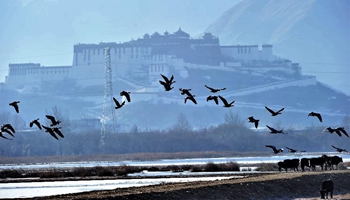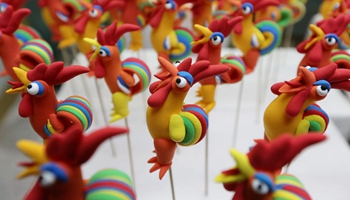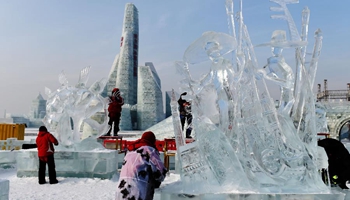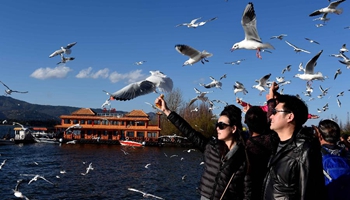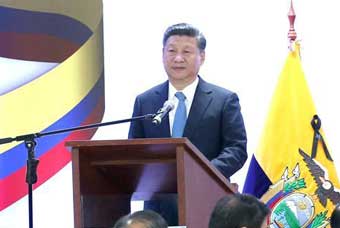DUBAI, Jan. 8 (Xinhua) -- Sales managers of companies from the petrochemical and machinery sectors in China said here on Sunday that they have encountered recent fluctuation of the Chinese currency, but the impact is manageable.
Currency fluctuations are major challenge for companies whose exporting and importing volumes dictate their pace of doing business and this applies for Chinese producers with ample business activities overseas in particular.
"The recent decline of the yuan is a challenge, but the impact is not significant because we innovate," said Lee, vice director at Beier Machinery Group from Zhangjiagang Economic and Technological Development Zone in Jiangsu Province.
The yuan or renminbi lost 6.6 percent against the dollar in 2016. Chinese foreign exchange reserves stood at about 3.01 trillion U.S. dollars last month, down from about 3.05 trillion in November, the State Administration of Foreign Exchange (SAFE) said, citing figures from the central bank.
"We exhibit for the fourth time at the Arabplast in Dubai and we have customers in all 22 Arab countries. We catch up with existing clients and we look for new customers," said Lee.
The Gulf Arab states, in particular, implemented green goals in recent years, and the Dubai government launched a strategy in 2014 to lift the sheikhdom to the world's top 10 greenest cities.
Senior sales manager Lisa Zhao from Labthink Instruments Co., the top Chinese firm for testing machines for flexible materials, said the lower yuan was even some form of advantage for exporting her products to the Gulf Arab countries "because their currencies are pegged to the dollar."
"We see more potential in the region which has a strong position in petrochemical products like polyethylene (plastics) and related products," said Zhao.
Since 2014, China has been the biggest trade partner of Dubai, the UAE's business and trade hub.
Bilateral exchange between China and the UAE has reached 60 billion dollars by the end of 2016, according to the UAE government officials.
The three-day Arabplast 2017, organized by German firm Messe Düsseldorf, will run through Tuesday.
The fair brought together 972 companies from 39 countries and 12 national pavilions.

